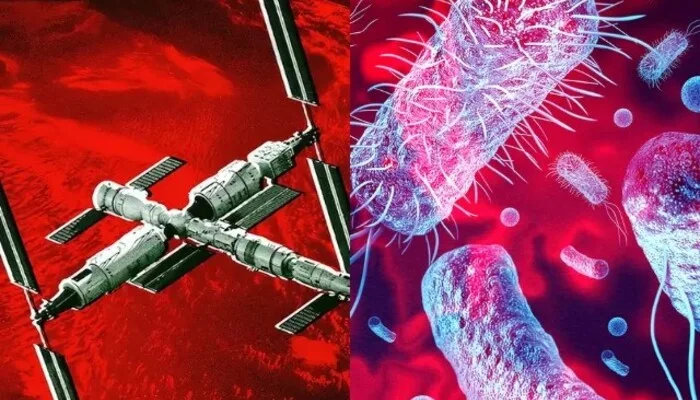A fast-evolving spaceborne bacteria discovered aboard China’s Tiangong space station is raising alarms among scientists. Named Niallia tiangongensis, the microbe is showing signs of rapid adaptation to space, sparking concerns about its potential impact on astronaut health and spacecraft integrity.
Bacteria Thriving in Orbit
Collected during the Shenzhou 15 mission in 2023, Niallia tiangongensis displays extraordinary survival traits. It thrives in low Earth orbit, resisting harsh radiation, microgravity, and vacuum conditions. Even more concerning, it forms biofilms—a protective layer that shields it from disinfectants and radiation.
This resistance could allow it to persist on spacecraft surfaces and systems, making routine sterilization efforts less effective.
No Harm Yet, But Risks Loom
Although the bacteria hasn’t harmed astronauts so far, researchers warn it may evolve unpredictably. Space is a unique environment—high radiation, isolation, and zero gravity can all accelerate genetic mutations. Over time, Niallia tiangongensis could become more aggressive or invasive.
Experts fear that if unchecked, it could affect human health or degrade critical spacecraft materials, especially on long-duration missions to the Moon or Mars.
Read: PSX Surges as Buying Rally Lifts KSE-100 by Over 950 Points
Mutations in Microgravity
Microbiologists believe space could be triggering unexpected evolutionary changes in this bacteria. Dr. Chen Liyu of the China National Space Administration noted its ability to adapt to an environment entirely alien to life on Earth. Such resilience hints that other microbes in space might also be mutating in silence.
Genome Sequencing Underway
Researchers are now decoding the bacteria’s genome to understand how it is changing. Their findings could be key to preventing future microbial threats. If such organisms adapt faster than expected, space agencies may need to overhaul their biosecurity protocols.
An Unseen Threat in the Making?
As space exploration accelerates, the discovery of Niallia tiangongensis highlights a hidden danger. Monitoring and controlling microbial life in orbit may become just as important as managing fuel or oxygen. The next big space challenge might not come from asteroids—but from microscopic invaders evolving right alongside us.
Follow us on Google News, Instagram, YouTube, Facebook,Whats App, and TikTok for latest updates
